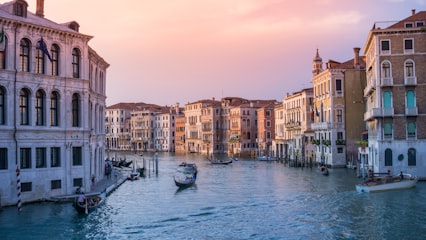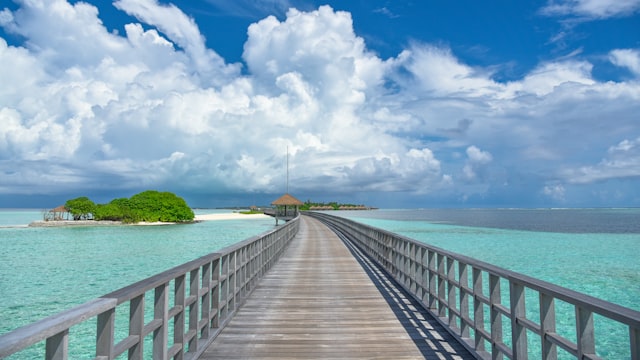<h2>Sustainable Tours with Legitimate Tour Providers and Travel Consultants</h2>
Is ethical hospitality and tourism a company responsibility? How to define tourism ethics? Sustainable tourism suggests taking into consideration the potential adverse effects of one's practices as a tourist on the environment, people and regional economy.
<h3>Don't Litter</h3>
According to research a considerate tourist for the most part has desirable aspects that indicate they are careful about the people they go to. While journeying, being diligent of your waste is among the most pressing characteristics of being a responsible tourist. <h3>Respect Animals</h3>
In accordance with global standards a considerate traveling companion frequently has accepted signs that indicate they value the locations they see. Commonly when planning holiday breaks many people expect to ride elephants, swim with dolphins, or get a picture with tigers. These animal activities seem benign but actually they are awful for the animals. Nothing at all about it is natural behavior and animals endure disturbing training and compulsion. Wildlife tourism is a big business in many places around the world, but one hour of entertainment and a few photos means many years of suffering for the animals. <h3>Ask Permission Prior To Taking Photographs or Filming Videos</h3>
While on holiday there are approaches an ethical traveler can display that they respect areas. Everyone likes to capture their particular experiences while taking a trip, Nonetheless just about everywhere it is considered really rude snapping photos of people without getting permission. Additionally, always be aware of what you're capturing. Religious sites, museums and galleries, and cultural sites generally have rules on camera usage, it's a good idea to adhere to the rules. Do not make an effort to sneak a photo if no one is looking. Additionally, if you ask before you click, it provides you an opening to begin a conversation. <h3>Promote Responsible Travel </h3>
A majority of vacationers don't know about the idea of sustainable travel and hospitality. Therefore it is pivotal that we inform friends, family, and all the people that we meet along the way. A respectful conversation with tourists benefit local people. Support the idea of ethical tourism via actually meeting with people, social media networking, and blogging.
<h3>Sustainable Tourism Is Too Essential to Take Too Lightly</h3>
<p>Are ethics important to the the sustainable travel business? Ethical tourism essentially implies travel and leisure which is good for people and the environment. It can offer a better income to people living in the area by sourcing services and products locally. There are important economic impacts to towns when products and services for tourists are sourced locally. Travel destinations, tour operators, and hospitality providers will be rewarded by making sustainable tourism relevant to their offers, and should give alternatives to customers focused on their travel having the right kind of impact. </p>
Precisely why are ethics appreciable in the hospitality and tourism business? Because the hospitality business is a service industry that caters to the general public, complications and disputes are normal. Anytime employees take responsibility for their own actions, it can make stopping and clearing up complications much less difficult. Business ethical motives increase value to the service. </p><p>Exactly why is ethical tourism needed? It is substantial for the travel business to showcase ethical hospitality and tourism to be able to cultivate the business while protecting environments, tradition, and legacy.
<h3>Green Tourism</h3>
Companies occasionally use these names deceitfully so as to draw in scrupulous visitors without actually having any green or socially responsible policies ready. Whatever you prefer to call it the definition stays similar: careful environmentally aware low impact tourism that embraces the characteristics of places and people without the need to alter them excessively. It's crucial that visitors investigate a little bit about hotel claims of being green prior to making reservations. Most eco-friendly hotels have information on their websites about their sustainability efforts detailing their concrete actions of saving natural resources, safeguarding vegetation and animals, and adding to the wellbeing of local communities.
<p>Researching sustainable tours starts with some basic answers. Is tourism good? Travel and hospitality supercharges economic climates. It employs hundreds of thousands of personnel, enriches our organizations and pays for essential typical services, including schooling and law enforcement. Hospitality and Tourism finances operating budgets and infrastructure for local public education. Most developing regions want to develop tourism in order to bring in foreign capital and to raise the quality of life for their people. But, what starts out as good results can very quickly deteriorate things.Sustainable travel is too considerable to forget. Sustainable tourism organizations sustain environmental conservation, social development, and local economies. Types of sustainable business strategies include conserving water and energy, supporting community conservation projects, recycling and treating waste, taking on staff from the local community, giving them fair pay and providing training, and sourcing locally-produced products for restaurants and gift shops. Sustainable tourism operations take tangible actions to boost the well-being of local people and come up with favorable benefits to the conservation of natural and cultural heritage. In doing so, they often reduce their own outlay and protect the durability of their ventures alongside encouraging responsible travelers. To allow sustainable tourism to prosper, it needs to be lucrative for business people.
A change is overtaking destination travel. Responsible travel is in demand; and it is what considerate people are in the market for whenever they consider adventure.







